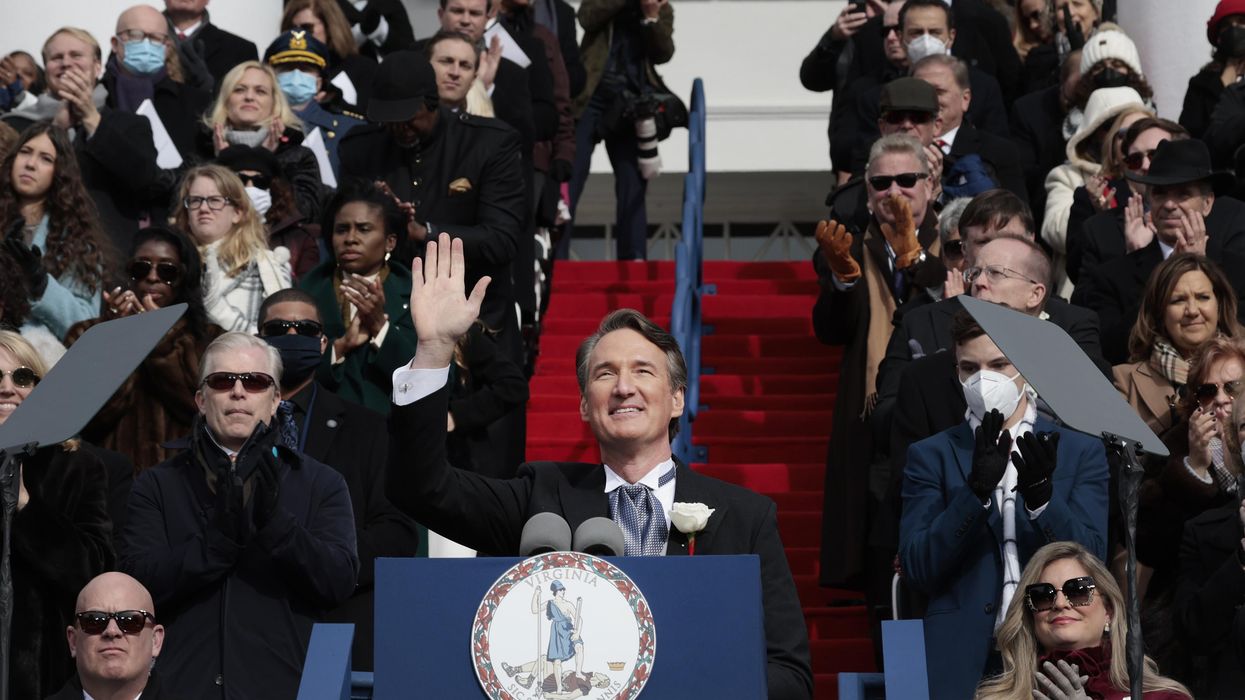Goldstone’s most recent book is "On Account of Race: The Supreme Court, White Supremacy, and the Ravaging of African American Voting Rights."
Education has always been a battleground in the culture war, but the fight over what can or should be taught in schools has escalated to the point where, as in Virginia, it can determine who is elected to high public office.
Conservatives, like new Virginia Gov. Glenn Youngkin, are convinced the only way to keep the country strong is to restrict education to “positive” or “patriotic” views of the United States, while those who consider themselves “woke” want to stress the nation’s inequalities and injustices, both past and present. In addition, conservative parents are insisting on “protecting” children from material they consider too sexual, too violent or otherwise distasteful, a category that has had broad application.
The two sides have quite different strategies. Those on the left seek to require teachers to assign certain books, many of which are already available in school libraries, and increase emphasis on curriculum topics already touched on in class sessions. Conservatives, on the other hand, are focused on banning subject matter they deem offensive and purging both school libraries and reading lists of books they consider inappropriate.
As such, it is the right that is the more aggressive. Conservatives in more than 30 states have sought to pass laws or issue directives threatening fines, dismissal or even incarceration for educators who defy their edicts. Youngkin’s Virginia has even set up a “tip line,” encouraging citizens to inform on teachers or school officials who are “behaving objectionably,” much as Texas has attempted to reward those who inform on abortion providers.
Most of the criticism of this proposed censorship has been on moral or political grounds, likening the conservative movement to Stalin’s Russia or Hitler’s Germany. Conservatives counter by insisting radical liberals are trying to impose decadent and destructive mores on schoolchildren too young to appreciate evil. As has become inevitable in contemporary America, the terms “freedom,” “democracy,” and “liberty” have been tossed about casually by both sides, neither of which has any intent to extend those principles to their opponents. Ironically, one of the most active groups trying to restrict what children can read or learn calls itself “Moms for Liberty,” although, unsurprisingly, their members have limited the right to liberty to those who think the way they do.
While philosophical questions should certainly be part of the debate, there are other facets of the current crusade that need to be addressed. One obvious consequence of banning just about anything is that it virtually ensures that more and more people will choose to try to experience it. Soon after the McMinn County, Tenn., school board voted to remove Art Spiegelman’s more than three decades old graphic Holocaust novel “Maus” from the eighth-grade curriculum, it shot to the very top of the Amazon bestseller list. In addition, bookstores and others opposed to the rule offered free copies of “Maus” to any parent who requested one. As a result, Spiegelman will make more money from his book than he has in years and should consider sending McMinn County officials a thank you note. Other books in conservatives’ crosshairs, such as Toni Morrison’s “Beloved” and Harper Lee’s “To Kill a Mockingbird,” are experiencing similar revivals.
While forbidden fruit is an indication of the futility of trying to forbid dissemination of controversial ideas in anything but a police state, it does not address the most important reason to be wary of censorship. Restricting teaching to “acceptable” material leads to an intellectual homogeneity that works to the detriment of critical thought. One of the key skills parents should want schoolchildren to acquire is the ability to sift through competing points of view and decide for themselves which have validity and where they believe there are flaws. Learning to weigh alternatives is vital not just in studying history or examining social issues but is fundamental to success in business, science, technology, intelligence work and indeed virtually any avenue of human endeavor.
But how can we expect students to learn to weigh alternatives when conclusions have been decided for them in advance? And how can we expect adults to master these skills when we have not exposed them to similar problems as children, indeed have forbidden them from tackling them? We may succeed in creating a nation of zealots, which extremists on both sides seem to favor, but we will not create a nation of critical thinkers when critical thinking is an absolute requirement in an era of almost unparalleled technological and sociological change.
While nativists would fiercely deny that American exceptionalism is on the wane, it is all too clear that foreign competition is becoming more intense. Nations such as China may have political and economic systems most Americans deplore and regularly employ tactics that most Americans consider dishonest, but the threat they pose to America’s preeminent place in world affairs is real. The best way to counter these attacks and keep pace, perhaps even survive, is with a constant stream of effective, educated thinkers. For the moment, the United States university system remains the best in the world but in this area as well, other countries are closing the gap and the easiest way to allow our universities to deteriorate is by not supplying them with superior students from American high schools.
We are already on that road. Critical thinking is often sneered at by a large number of Americans, many of them parents, who expose themselves to nothing but facile, convenient commentary by self-serving ideologues such as Tucker Carlson or Rachel Maddow. How else, for example, to explain why Americans would refuse to be vaccinated against a dread disease that will eventually kill more than 1 million of their countrymen because they have been told vaccination is part of a devious plot by their political opponents?
In the end, if Americans genuinely wish to maintain this nation’s traditions of innovation, superior problem solving and economic opportunity, they will have to learn to accept that limiting learning to ideas they agree with is not the way to do it.












 Senate Committee on Commerce, Science, and Transportation ranking member Sen. Maria Cantwell (D-WA) (R) questions witnesses during a hearing in the Russell Senate Office Building on Capitol Hill on February 10, 2026 in Washington, DC. The hearing explored the proposed $3.5 billion acquisition of Tegna Inc. by Nexstar Media Group, which would create the largest regional TV station operator in the United States. (Photo by Chip Somodevilla/Getty Images)
Senate Committee on Commerce, Science, and Transportation ranking member Sen. Maria Cantwell (D-WA) (R) questions witnesses during a hearing in the Russell Senate Office Building on Capitol Hill on February 10, 2026 in Washington, DC. The hearing explored the proposed $3.5 billion acquisition of Tegna Inc. by Nexstar Media Group, which would create the largest regional TV station operator in the United States. (Photo by Chip Somodevilla/Getty Images)







